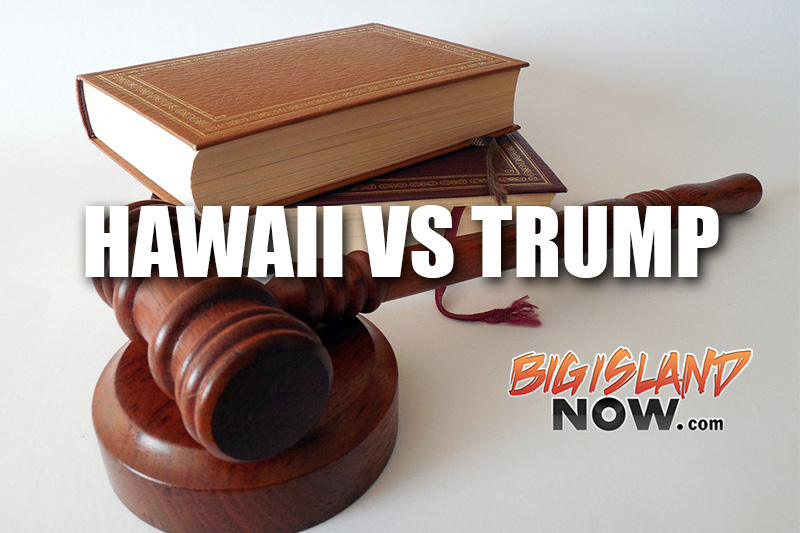Travel Ban Parties Rebut Interpretation of Supreme Court Ruling
 Hawai‘i filed a reply memo today supporting its June 29 request to federal district court Judge Derrick K. Watson to clarify the scope of the travel and refugee ban injunction in Hawaii v. Trump, in light of last Monday’s ruling by the United States Supreme Court.
Hawai‘i filed a reply memo today supporting its June 29 request to federal district court Judge Derrick K. Watson to clarify the scope of the travel and refugee ban injunction in Hawaii v. Trump, in light of last Monday’s ruling by the United States Supreme Court.
Hawai‘i’s latest filing is a reply to the opposition memorandum filed by the Trump Administration on July 3.
In the Trump Administration’s opposition, it argued that “close familial relationships” should only be those specifically described in certain portions of the Immigration and Nationality Act (INA).
The U.S. Supreme Court, however, already decided that this is not the case. For example, one of the relationships the Supreme Court said was “clearly” close family—Dr. Elshikh’s mother-in-law (and those “similarly situated”)—is not found in any provision of the immigration laws the Trump Administration cites. Yet the Supreme Court still included them as a “close familial relationship” for the purposes of the injunction obtained by Hawai‘i. Additionally, other immigration laws include the very same close family members the Trump Administration wants to exclude.
“In its 6-3 order, the U.S. Supreme Court used a balancing test that says the travel and refugee bans should not be applied when doing so would inflict a concrete hardship on someone in the United States,” Attorney General Doug Chin said. “The Trump Administration’s guidelines may inflict a concrete hardship by excluding grandparents, uncles, nieces, cousins and more. This is why we have asked the federal court to clarify the scope of its injunction.”
Hawai‘i’s reply memorandum states in part:
For five days and counting, the government has been directing U.S. consulates and refugee processing organizations to deny entry to foreign nationals whose grandparents, aunts, nephews and other close relatives are waiting for them in this country. At the same time, the Government has barred the doors to numerous refugees with a connection to the United States, even where a resettlement agency has a relationship with a particular refugee that involves the investment of copious resources for pre-arrival planning. These actions plainly “burden * * * American part[ies] by reason of [their] relationship with [a] foreign national” and so are unlawful.
ARTICLE CONTINUES BELOW ADThe government could have avoided this result. It could have engaged with plaintiffs in a dialogue that would have brought to light these harms, as well as the multiple additional errors the government has already corrected. But the government refused. Indeed, even on the day of the rollout, the government spent precious hours conducting a conference call not with plaintiffs, but with reporters. It then issued flawed guidance regarding fiancé admissions that a brief discussion with plaintiffs would have easily avoided.
In short, the government elected to implement the stay in a manner that jeopardizes the rights of countless Americans and keeps the government on the deeply flawed trajectory it has pursued since the release of the first Executive Order.
Hawai‘i filed its reply memorandum today, one day early, because the people that the Trump Administration has excluded from the definition of “close family members” might already be denied entry into the country.
A copy of the reply memorandum can be downloaded here.
Sponsored Content
Comments





_1770333123096.webp)


